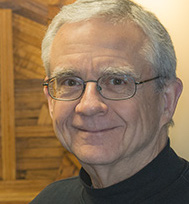Is Zero Card the Future of Better Care?
Pioneer in quality and cost transparency uses $0 co-pay to improve health outcomes for corporations who self-insure


We spoke with Stanley N. Schwartz, MD, FACP, and Chief Medical Officer of Zero Card — https://www.thezerocard.com/ — about why the company has been successful.
Market Misconceptions
“Two big misconceptions get in the road of better outcomes.
- People have to have skin in the game — their own dollars — to make good decisions.
- Co-pays, deductibles and coinsurance help avoid unnecessary medical care by making people better healthcare shoppers
“We find that few people have access to information on healthcare quality and cost so it’s virtually impossible to make informed decisions.
“Also, good research shows that pushing costs onto patients results in cutting back on necessary care more than often than unnecessary care.”
Cash Pay Beginnings
“The Zero Card began in Oklahoma because businesses that self-fund their healthcare wanted access to the cash-pay pricing offered by several great providers, such as The Surgical Center of Oklahoma — https://surgerycenterok.com/. These providers were already offering great cash prices to people without insurance.
“To get this pricing, Zero Card facilitates direct contracting between businesses and these providers who offer cash prices for bundled services. Employers don’t run these claims through an insurance mechanism which reduces overhead and complexity.”
Quality and Cost Transparency
Zero Card uses Quantros — https://www.quantros.com/ — for quality and cost data reported to Medicare. Zero Card uses this data to identify physicians and facilities in each market who are high-value performers.
Cash Pay Pricing
Zero Card works with these high-value providers to agree on a price for the complete cost of each procedure. The complete cost of each procedure includes all the ancillary services such as lab tests, x-ray and scans, physical therapy and surgical procedures ranging, as they like to say, “from bunions to bypasses.”
Zero Card believes virtually any procedure that can be scheduled can be bundled and priced in advance.
The net effect is that we direct more care to the most efficient high-value providers.
Diabetes Care
“We have a vision for diabetes care because we know that many people with diabetes cut back on care, meds, and insulin because of cost. That only sets the stage for expensive complications in the future.
“We have developed the framework for a comprehensive diabetes care program. It would have five tiers of service — from symptomatic T2D to full-on T1D. Each program includes at least 3 clinical visits per year plus numerous direct care calls with health professionals including diabetes educators, registered dieticians, and behavioral health specialists. Our objective is simple: we want to remove all financial barriers that stand in the way of excellent care.
“We are currently evaluating partners to help us realize this vision.
Model for Future
About half of all people who get healthcare coverage through work are in plans that are self-funded through their employers. Traditional health insurance carriers such as Blue Cross often administer these plans but each self-insured company assumes the financial risk. Better outcomes at a lower cost greatly benefit these employers.
The Zero Card believes self-funded employers have great leverage to improve care, reduce costs and assure that their covered members have the fewest financial barriers to care.





